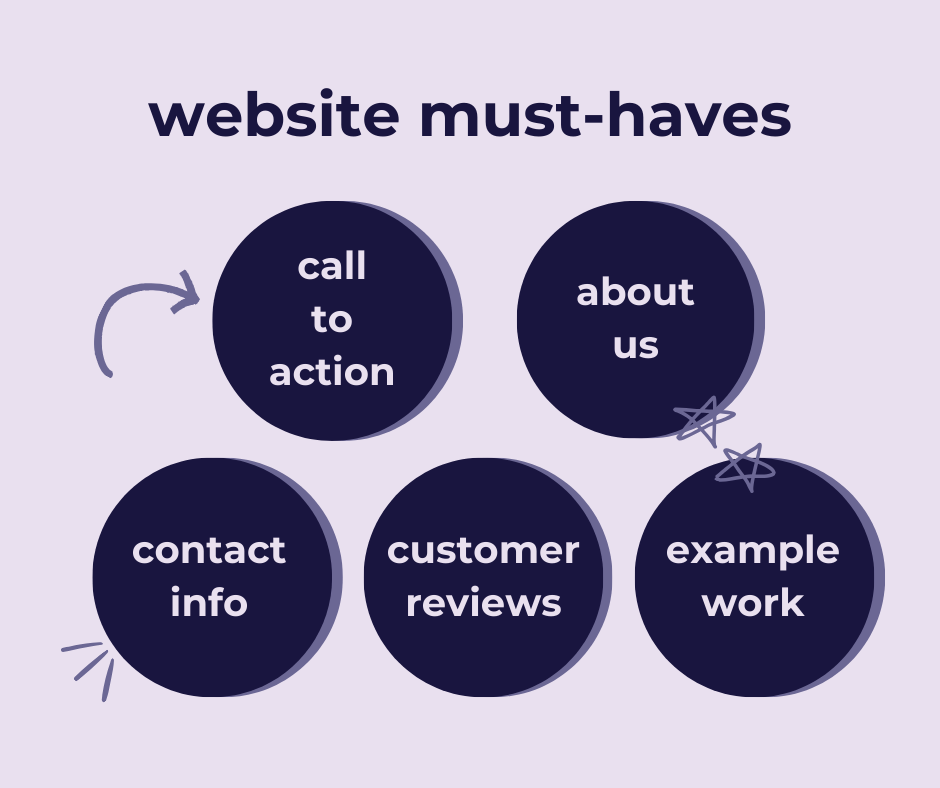Website Wonders: Developing Your Small Business’s Online Hub
In today’s digital age, your website serves as the online hub for your small business. It’s often the first point of contact between you and potential customers, making it crucial to leave a lasting impression. A well-designed website can captivate visitors, boost your credibility, and drive conversions. Here’s actionable advice on website development and design to help your small business create a captivating online presence.
Understanding Your Audience: Designing for User Experience
Knowing your audience is the foundation of effective web design. Your website should cater to the preferences and needs of your target market, ensuring a user-friendly experience. Start by identifying your audience’s demographics, interests, and online behaviors. Use this information to tailor your website’s design and content.
Tips for Enhancing User Experience:
- Simplify Navigation: Make it easy for visitors to find what they’re looking for by organizing your site with clear, intuitive navigation menus.
- Responsive Design: Ensure your website looks great on all devices, from desktops to smartphones. A responsive design adapts to different screen sizes, providing a seamless user experience.
- Fast Loading Times: Optimize your website to load quickly. Slow websites can frustrate users and lead to higher bounce rates. Use tools like Google PageSpeed Insights to identify and fix issues.
Effective Small Business Website
A successful small business website includes several key components that work together to create a positive user experience and encourage conversions.

Here are the Must-have Elements:
- Clear Call-to-Actions (CTAs): Every page should guide visitors towards taking a specific action, whether it’s making a purchase, signing up for a newsletter, or contacting you. Use prominent and compelling CTAs to direct users.
- Contact Information: Make it easy for visitors to get in touch. Include your phone number, email address, and physical address prominently on your website. A contact form can also streamline communication.
- About Us Page: Tell your story and build trust with an engaging “About Us” page. Highlight your mission, values, and team members to connect with your audience on a personal level.
- Testimonials and Reviews: Showcase positive feedback from satisfied customers to build credibility. Include testimonials, case studies, and reviews to demonstrate your expertise and reliability.
- Social Proof: Display logos of clients you’ve worked with, certifications, or awards to further establish your authority in the industry.

Crafting Compelling Content that Engages and Converts
Content is king when it comes to captivating visitors. High-quality, relevant content not only attracts and retains visitors but also boosts your search engine rankings. Here’s how to create content that engages and converts:
- Blog Regularly: Maintain a blog with informative and valuable posts related to your industry. This positions your business as an authority and keeps visitors coming back for more.
- Use Visuals: Integrate images, infographics, and videos to make your content more engaging. Visual content can break up text and illustrate points more effectively.
- Keep it Concise: Avoid overwhelming visitors with too much information. Keep your content concise, clear, and focused on delivering value.
- Tell a Story: People love stories. Use storytelling techniques to make your content more relatable and memorable.
Optimizing for Search Engines:
SEO Best Practices Search engine optimization (SEO) is vital for improving your website’s visibility in search engine results. By following SEO best practices, you can attract more organic traffic and reach a wider audience. Here are key SEO strategies:
- Keyword Research: Identify the keywords your target audience is searching for and incorporate them naturally into your content, headings, and meta descriptions.
- On-Page SEO: Optimize individual pages by including keywords in the title tag, URL, header tags, and throughout the content. Ensure your images have descriptive alt text and use internal linking to connect related pages.
- Quality Content: Search engines prioritize high-quality, relevant content. Regularly update your website with fresh content that addresses your audience’s needs and questions.
- Technical SEO: Ensure your website is technically sound. This includes having a clean URL structure, fast loading times, mobile-friendliness, and a secure HTTPS connection.
Leveraging Analytics to Continually Improve Your Website
Web analytics provide valuable insights into how visitors interact with your website, helping you make informed decisions for improvement. Tools like Google Analytics can track metrics such as traffic sources, user behavior, and conversion rates.
Tips for Leveraging Analytics:
- Monitor Key Metrics: Keep an eye on important metrics like bounce rate, average session duration, and conversion rates. These indicators can reveal areas for improvement.
- A/B Testing: Experiment with different design elements, CTAs, and content to see what resonates best with your audience. A/B testing allows you to compare variations and choose the most effective option.
- User Feedback: Collect feedback directly from your visitors through surveys or feedback forms. This can provide insights into their preferences and pain points.
By understanding your audience, incorporating essential website elements, creating engaging content, optimizing for search engines, and leveraging analytics, you can develop a small business website that captivates visitors and drives success. Your website is your digital storefront—make it a place where visitors want to stay and engage. Need help in this area? Our team of experts is ready to help you take your website to the next level.

